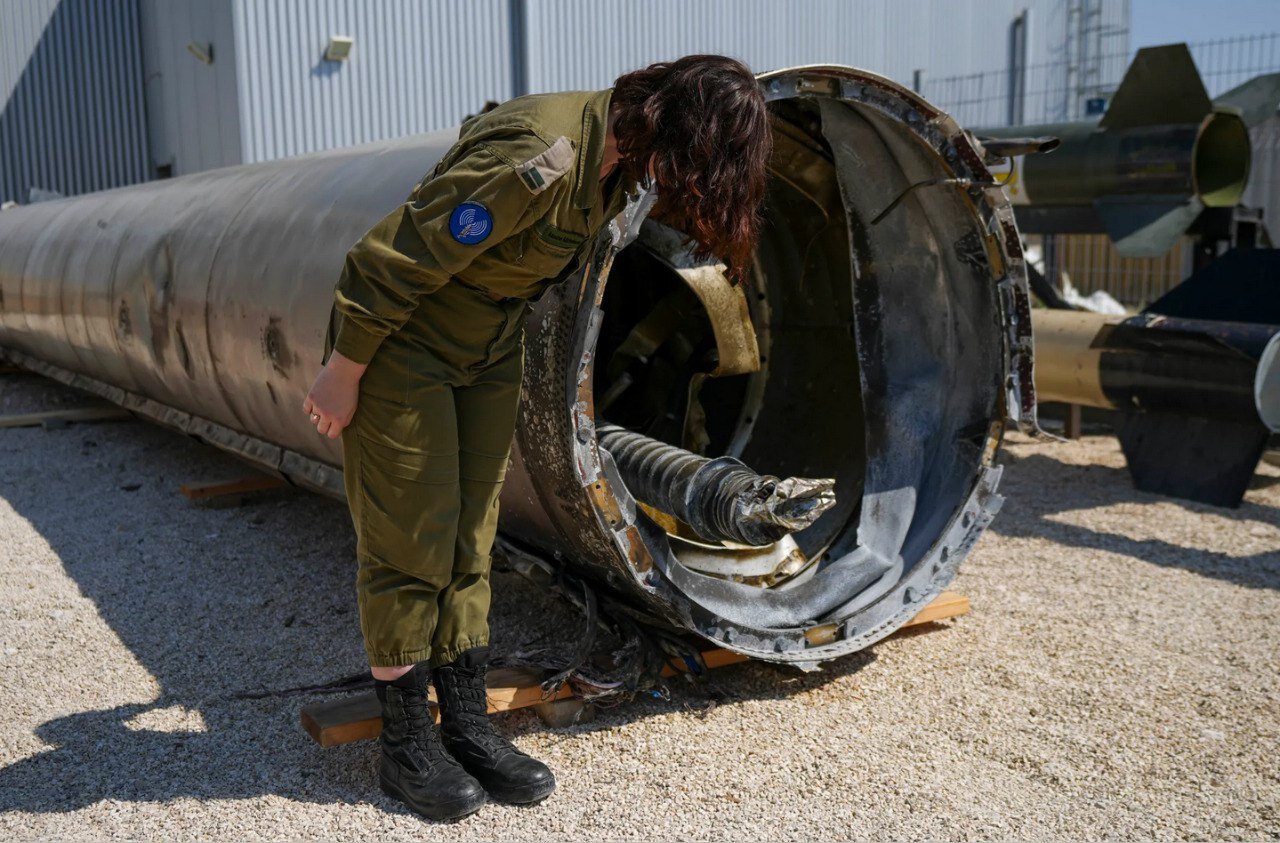Arabs and Israel after April 14
Arab states face new reality following success of Operation 'True Promise'

TEHRAN – With Iran penetrating Israel’s long-inflated defense system with a relatively small number of its old technology missiles, the Abraham Accords and the future of Arab-Israeli relations have once again come under the limelight.
Israel has been downplaying Iran’s attack claiming that only 1% of the fired projectiles managed to hit their targets. To prove that, it has been filming only specific parts of the affected areas while banning the distribution of any other footage captured during or after Iran’s offensive.
In a video released by the Israeli regime, a Persian-speaking member of the Israeli military can be seen standing next to a missile booster claiming it to be an “Iranian missile that missed the aim”. “This shows that despite the Islamic Republic’s claims, Israeli bases suffered no damage,” he said, seemingly unaware that boosters are designed to separate from the missile before the warhead reaches its target.
Other videos Israel has published to demonstrate the “minor damage” inflicted on its military installations have also raised doubts. One clip shows a rather small hole in the ground with soil and dirt perfectly accumulated in one spot next to it. Another exhibits the aftermath of 1-tonne warheads in an area, where small pipelines are remarkably left fully intact. Notably absent from the footage provided by the authorities are any indications of explosions or fire. Furthermore, viewers are conspicuously deprived of any wide-angle shots depicting the targeted bases.
Military analysts have also challenged Israeli claims of a 99% success rate in downing Iranian missiles and drones. It is believed that the three highly protected military sites Iran targeted have either been destroyed or suffered heavy damage.
The undeniable success of Iran’s operation, dubbed True Promise, came while Israel and its allies had been preparing for a standoff for over 12 days. Tehran allegedly, also informed regional countries about its imminent attack, 72 hours before it took place. With all the time in the world as well as the help of the U.S., the UK, France and Jordan, Israel still did not manage to stop Iran from precisely hitting the bases involved in the regime’s April 1 attack on the Iranian embassy in Damascus.
The Iranian attack on the occupied territories seems to have once again debunked Israel's lies about its invincibility after the regime failed to “eradicate” Hamas over a six-month war in Gaza.
Arab countries also a recipient of Iran’s message
Operation True Promise was massively hailed by people across Arab countries. Some Arab citizens even took to the streets to celebrate the fact that for the first time in the past 6 months, Palestinians in Gaza could let out a sigh of relief, knowing the projectiles lighting up the skies were not meant for them.
Strong anti-Israeli public sentiments in the Arab world and the new-found popularity of Iran could mean that Arab states will have to rethink the idea of growing intimate with Israel, which began with the introduction of the Abraham Accords in 2020.
“The U.S. has been trying to persuade regional countries that a deal with Israel could ensure security for them. That importuning is going to stop now that the true capabilities of Israel have been revealed. Arab rulers will no longer feel obliged to form ties with Israel in order to protect themselves,” said Saedollah Zareie, a senior expert on West Asia.
Zareie added that with Iran’s policy of good neighborliness, forging stronger ties with Tehran could be far more beneficial for Arabs than getting involved in the Israeli regime’s endless woes. “I think regional countries are going to gravitate more towards Iran in the future. Different states in the region should try to ensure peace and security without relying on foreign forces. That would be the best for all of us.”
